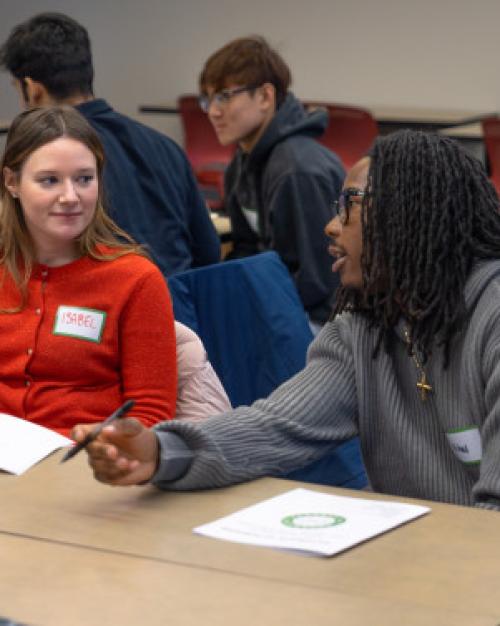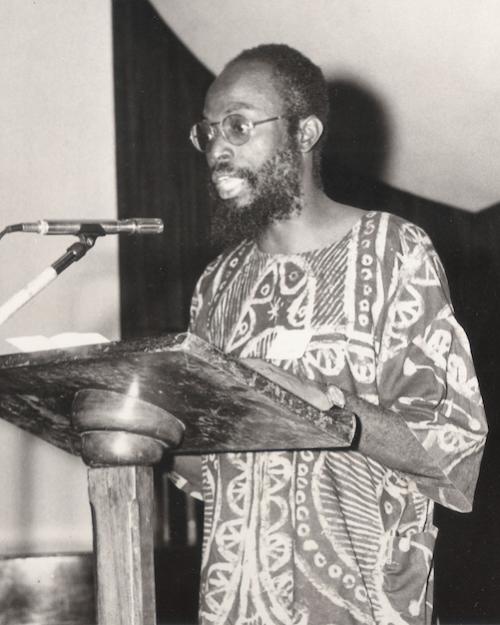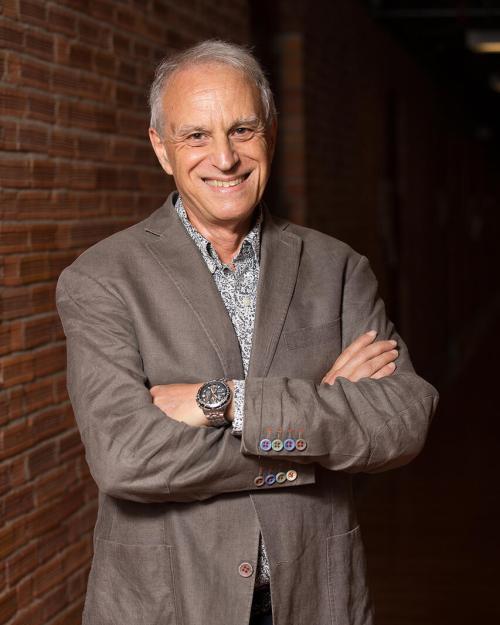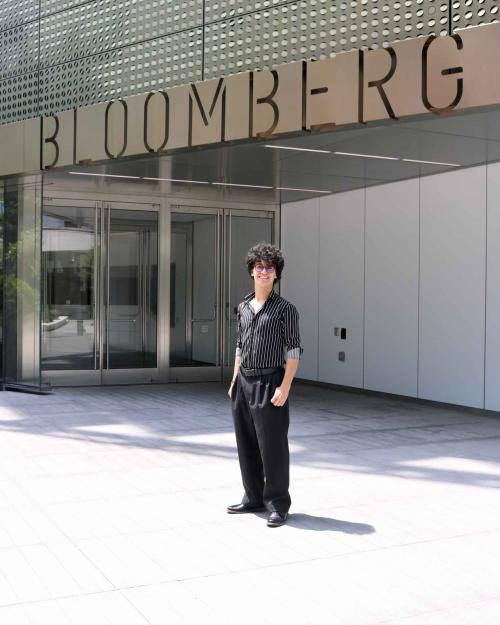Hamid Rezaee ’26 spent this summer at Cornell Tech in New York City, working to refine a computer model that will help radiologists detect small cancer cells before they spread further in the body.
He was among the 119 students from the College of Arts & Sciences awarded Summer Experience Grants (SEG) this year. The grants help students pay for housing, food, transportation and other expenses while they undertake minimally-paid or unpaid summer internships or positions.
Rezaee, a computer science major, has spent the last two summers interning and conducting research in New York City, first with a startup aerospace company and now with a research team at Cornell Tech and Weill Cornell Medical Center.
“I’m well over 200 to 300 failed experiments at this point,” Rezaee said in July, quickly adding that that’s actually a good thing. “My task is to train this model to spot cancer cells using fMRI images of brain scans. And these can be as small as 4 pixels.”
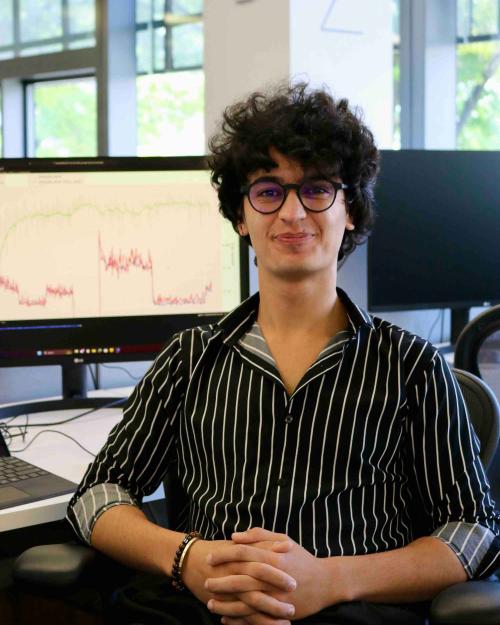
He edits his model every day, “penalizing” the model if it makes a mistake, making refinements and then running the model every night. In the morning when he comes to campus, he discovers if it made fewer errors.
If all goes well, at the end of the summer or into the fall, the model will surpass other existing models for detection of the smallest cancer cells. And Rezaee will be included as an author on the paper that his supervisor, doctoral student Rachit Saluja (in Mert Sabuncu’s lab at Cornell Tech), would write to introduce this new tool to researchers and radiologists.
“It would be amazing for me to contribute this to the medical community,” Rezaee said.
The experience wouldn’t be possible, he said, without the SEG grant, which helped provide funding for the metro, food and housing at St. John’s University.
“I wouldn’t have been able to accomplish any of this without the grant,” he said.
Other students who used SEG funding to explore their futures this summer included:
- Isabella Riano ’25, who interned with a non-profit dedicated to helping immigrant children with legal representation
- Nika Makoviak ’25, who spent the summer in Los Angeles, working with actors and directors at the Stella Adler Academy of Acting
- Eva Farroha ’25 , who investigated an RNA binding protein complex at the National Institutes of Health (NIH) in Maryland
- Olivia D'Ambrosio ’26, who worked in Commonwealth Financial Network’s Anti Money Laundering team and special investigations unit
- Mnumzana Moyo ’26, who interned with Emzini weCode, helping high school students in Zimbabwe learn computer coding
Riano said the SEG funding took away the stress she was feeling about taking an unpaid internship in Manhattan and commuting from her family home on Long Island. “Going to the city is $20 one way and getting food and professional clothes…I wasn’t sure how I was going to finance everything,” she said. “The SEG grant allowed me to focus on my job without having a financial burden.”
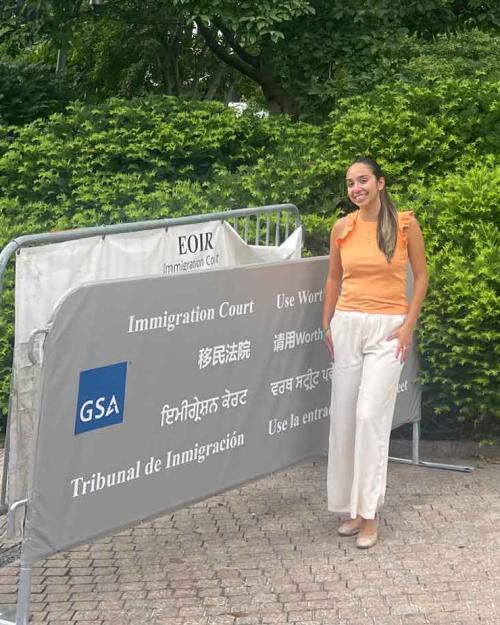
Riano spent her days working with attorneys at Safe Passage Project and their clients, young children or teenagers facing deportation.
“A lot of them are unaccompanied minors (who) crossed the border, coming from a place of neglect, abuse and poverty or escaping gang violence,” she said. “They have suffered through trauma and violence and are taking the chance to come here for a better life.”
A government and American studies major with minors in Latino studies and migration, Riano plans to attend law school and has an interest in immigration law. She has worked with the Cornell Defender Program, a pre-professional program run by Cornell’s Office of Academic Diversity Initiatives for students interested in exploring family and criminal law. She also spent a semester studying in Australia, where she worked with a program helping people seeking asylum there. “I’ve learned to use this sadness in a healthy way – it inspires me and pushes me forward,” she said.
Riano said she’s been frustrated to learn it can take many years for child immigrants to receive employment papers and a green card.
“I met 15 and 16-year-old girls from Honduras fleeing violence who talked about taking buses and cars and walking the whole way through Mexico and into the U.S.,” she said.
Riano said she’s wanted to be a lawyer since middle school, but this summer work has helped her “better understand the kind of law I want to pursue.”
Makoviak, who is from Kyiv, Ukraine, said finding a summer internship as an international student is a complex process, requiring approval from several institutions.
“I knew I wanted to do something related to film/theatre production, so I wrote around 60 emails to different theatre and film production companies,” said Makoviak, who is studying government and performing and media arts. “SEG allowed me not only to cover my basic needs but make my dream real. When I saw that the Academy is located at Hollywood Boulevard, I got speechless.”
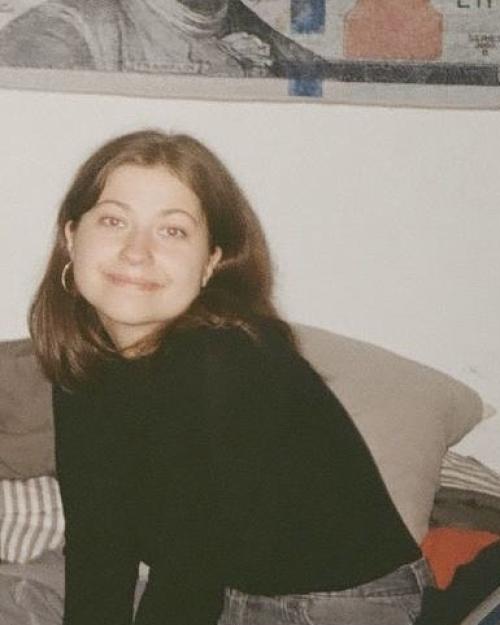
Makoviak worked as a production assistant under director Chris Thornton, on the play “Noises Off.”
“Not only do I get to substitute actors at rehearsals (and practice my acting) but I also learn about set and prop design,” she said. “Most importantly, I learn a lot about directing and director-actor dynamics. Listening to Chris working with the actors is like being on a 3-4 hour lecture on directing.”
Makoviak said the grant funding also allowed her to volunteer at short film festivals including LA Shorts and HollyShorts, where she met many passionate artists.
“This internship convinced me once more that it is crucial to follow your dreams,” she said.
Farroha, a biological sciences major with a concentration in computational biology who plans to attend medical school, worked in NIH’s National Heart, Lung, and Blood Institute last summer, so she chose to accept a position within the National Institute of Arthritis and Musculoskeletal and Skin Diseases branch this year.
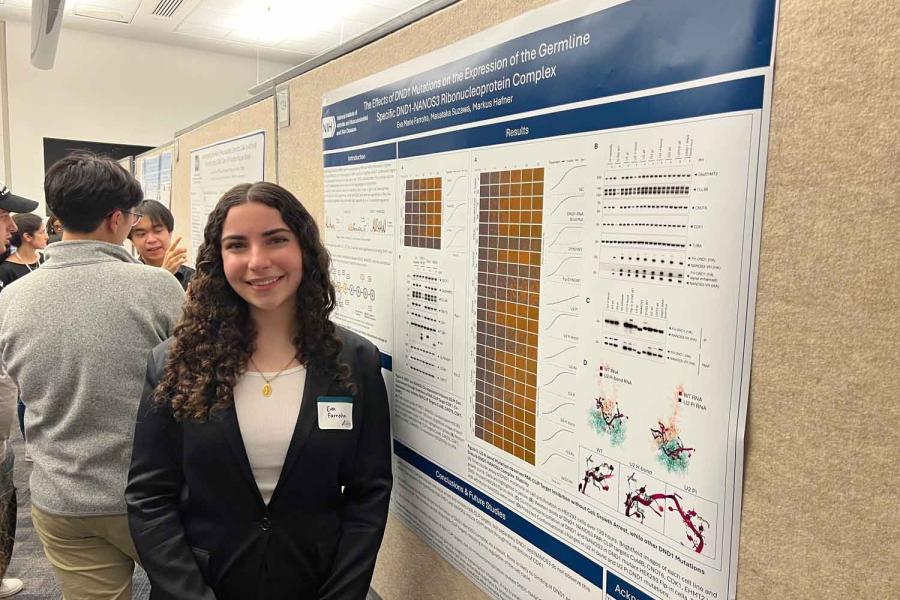
“I saw similarities between my favorite course BIOMG 4400 and the lab's research interests,” she said. “I was hoping to use the skills I already had learned in class while also engaging in new techniques.”
The protein complex Farroha studied is responsible for the production of functional sperm and ovaries. When the complex is disrupted, she said, it results in infertility.
“My project was to see how mutations in DND1 at its RNA binding regions affect the functionality of the whole complex,” she said. “This involved using predictive AI software to determine intramolecular interactions, constructing 8 mutant cell lines and performing a variety of experiments.”
The summer experience heightened her interest in research as she moves toward medical school, Farroha said.
“Conducting a research project allowed me to engage in critical thinking and professionalism,” she said. “I also think research is super valuable for the presentation aspect, which directly translates to how important effective communication is in the doctor-patient relationship.”
D'Ambrosio, a government major, said her summer work offered the chance to work on a legal team while also learning the intricacies of financial compliance.
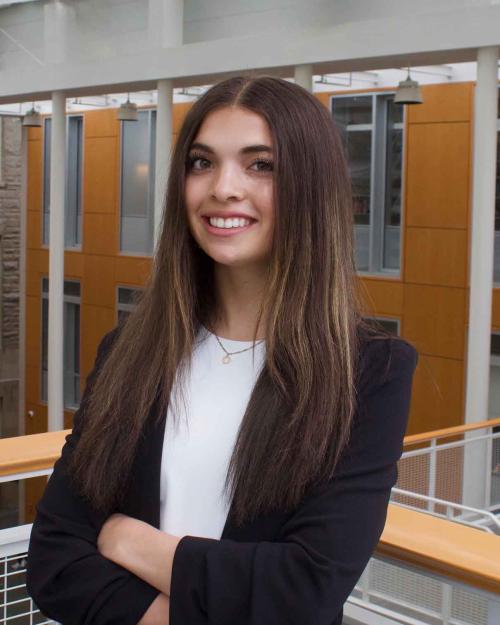
“My role encompassed conducting due diligence reviews, managing regulatory responses and preparing detailed case reports,” she said. “I also conducted monitoring projects aimed at fraud prevention and analyzed transactional data to identify and address risk patterns impacting clients.”
For her capstone project, she collaborated with other interns, developing and presenting a new strategic initiative to the company’s board of partners.
“This experience has not only solidified my commitment to attending law school but has also strengthened my ambition to pursue a career that bridges finance and law, with a particular focus on financial compliance or corporate law,” she said.
The SEG funding was vital, she said, as the company is located in Boston, so housing and living expenses were steep.
Moyo, a computer science major from Zimbabwe, said he never felt encouraged to pursue a tech career until he got to Cornell, “so volunteering at Emzini weCode was a chance for me to change that narrative for other youths in Zimbabwe so that they would be more informed about computer science when they get into college.”
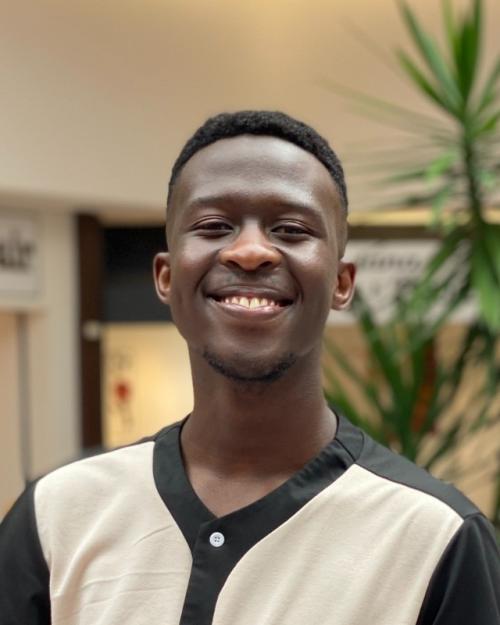
Along with teaching students, Moyo conducted research aimed at enhancing the hands-on learning experience for first-time coders and created content and helped with administrative tasks for the organization.
“I found so much joy teaching students how to code,” he said. “I want to be involved in a career where I get to work with young people to help them realize their potential and reach for the power to express themselves through technology.”
